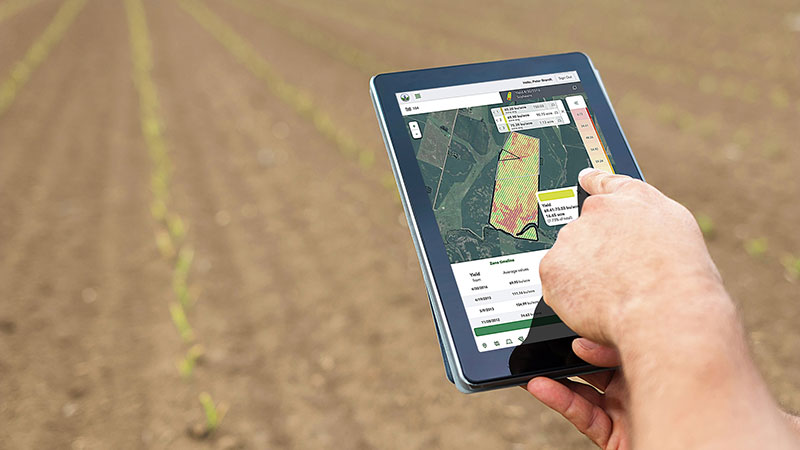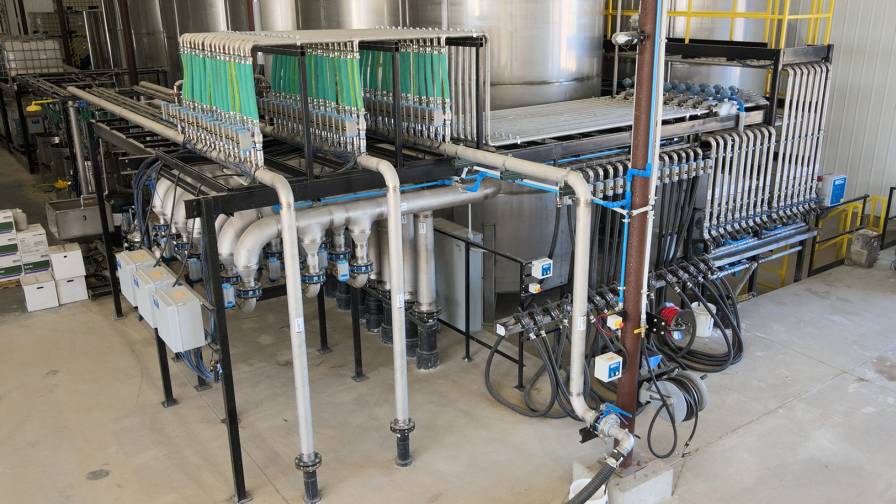When Working Hard Is Not Enough
When I was younger and more foolish I enjoyed rock climbing. On one particularly hard climb, I got into a tricky situation that might be similar to what many retailers find themselves in today. There I was 150 feet above the ground, spread-eagled against a hot rock face, and I couldn’t see my next move. With fingers and legs cramping up I did the obvious thing and tried harder with a new burst of energy. All of which only made me more tired. Falling was starting to look possible. Fortunately a friend further up the wall pointed out a way to move that got me out of my jam.
In rock climbing, as with ag retailing, “working hard is not a business plan.” Sometimes you need a new plan. Here are my thoughts on initiatives the very best retailers are taking to move past the challenges almost every retailer is facing today.
Management : Don’t Ask For Permission
The best ag retail managers realize they need to shift from a service and operations culture to a solution-based sales process if they want move forward. This is not a trivial change, and managers are finding some of their staff are resisting the transition. Sales staff who started their careers when operational moxie and agronomic knowledge were key differentiators among retailers likely need to upgrade their skills to prosper in a sales-focused culture.
My company, AgKnowlogy, works with retailers to implement our customer knowledge software, and sales performance training based on what we term Solution Selling. We know the transition from making agronomic recommendations to customer focused selling is not easy. Managers frequently tell us they want to make the transition, but then rather than driving the change, they ask the sales force for permission and act tentatively. In almost every case where this happens, meaningful progress toward an improved sales culture doesn’t happen. Some managers are nervous to implement the changes they want because they are afraid of losing staff. I suggest it’s time to upgrade that thinking.
Customer Knowledge Drives The Change
The shift from operations and an agronomic prescription approach to solution-based selling is being driven by customer knowledge and the adoption of a repeatable sales process. The old differentiators among retailers are collapsing. Weed and insect control in the biotech era continue to simplify. There is a trend toward large growers purchasing application rigs and applying their own products. The information growers need to produce crops is widely available online. With these advances, new problems for growers emerge, and successful retailers will focus on solving these problems.
One thing is certain — some of the challenges being experienced by retailers result from attempting to add value to customers with old-style differentiators. What customer strategies do you have in place to identify the problems of your key customers and what is your plan to solve those problems before your competitors do?
Customer Goals: Accountability For Results
An alarming number of retailers don’t tie company goals to individual customers. The best retailers are implementing SMART goals which are: Specific, Measurable, Accountable, Relevant, and Time-bound. AgKnowlogy has sales data on hundreds of retail locations, so I am confident on how the numbers play out. In every organization, there are always customers who are increasing in sales, and some are declining. Your growth plan must account for the predictable decline in sales from some customers. Without goals, your customers fly under the radar and changes in purchasing behavior easily go unnoticed.
A key point related to goals is that you must know the potential value of your customers. If you have not quantified the potential value of your customers and key prospects, how do you know what share of their business you have? Salesmen routinely overestimate their share of business with customers, leaving millions of dollars on the table in most retail organizations. Without quantifying customer potential value, and setting SMART goals to capture that potential value, there is insufficient focus in your organization.
Account Planning: Direction And Strategy
Goals set targets, but developing account plans with each key customer establishes the strategy and tactics you will implement to achieve the goal. Ideally you should collaborate with your customers on the account plan you want to implement with them. This encourages a shared vision of a solution for their business problems.
Your account plans should identify each customer’s business problems as you understand them at this point. (You will clarify these problems during the selling process.) I recommend you also estimate how effectively each customer or prospect thinks your current offer or solution to their problems is “on the money.” What are their “moments of truth” with you?
Aligning what you believe the customer’s business problems are with your estimate of how effectively they think you solve those problems will create insight into how you might refine your approach to the customer. It’s tempting to think energetic sales activities will help achieve your goals, but without a well-thought out account plan for each key customer, these activities may be wasted energy.
Sales Process: Achieving Predictable Results
Today’s best retailers are urgently raising the level of selling skills within their organizations. In the past when it was easier to differentiate through agronomic knowledge, selling skills were often overlooked. Today, agronomic knowledge is often a cheap commodity with little differentiating ability unless your competitors are inept in this area. AgKnowlogy is collaborating with retailers to implement Solution Selling for agriculture — a process-driven sales approach that produces predictable sales outcomes. Some of the key results our clients are looking for are:
■ Increased share of business with high-potential customers.
■ Improved customer retention from better alignment of company solutions with customer business problems.
■ Improved forecasting accuracy and pipeline management of opportunities.
■ More effective territory management.
■ Improved ability to develop and implement targeted selling campaigns.
The difference between solution-based selling and one focused on products is real. A solution-focused salesperson is more likely to ask questions to understand a grower’s revenue goals, and other business issues, as opposed to focusing on “production issues” too early in the sales process. He builds a shared vision with the customer on how the customer’s problem can be solved using his company’s products and services in a customized fashion. Above all there is a focus on a repeatable process that is shared within the company. The process becomes part of the company’s culture, and customers recognize this as a value-added benefit of doing business with the retailer.
The switch from product- and service-based selling toward a customer-centered, problem-solving approach is one of the great transformations in selling occurring in all sectors of the economy. Learning about these new approaches, and implementing them in time for the next sales cycle will produce significant rewards for your business.
Stay The Course: Commitment
Becoming more customer focused is a difficult cultural change. Don’t underestimate the personal effort, time, and leadership required to make the change from an agronomic, operationally focused company to a customer centric one. It takes more than a few pep talks to make the transition. If you don’t communicate your expectations to your sales staff at every opportunity, which means every meeting, and every time you travel together for coaching, don’t expect much improvement. What about your support staff, including equipment operators? Do they understand the vision?
In my discussions with managers, many are frustrated over the slow pace of change within their companies. The good intentions to embrace a customer centric culture can turn to discouragement if there are long-established practices and entrenched employees that don’t support the change. My advice is “stay the course.” At the same time prepare yourself that some employees can’t or won’t make the journey with you, and a plan must be put in place to deal with this reality.
Collaboration: Synergy
The complexity and size of the challenges facing retailers today make it difficult for a single organization to possess sufficient ingenuity and resources to address their challenges alone. Collaboration is a process in which two or more organizations jointly address issues they cannot solve individually. Without collaboration, managers are in a difficult situation. They must set direction and make complex decisions based on information and expertise, which might not reside within their organization.
Some retailers have collaborated with local ethanol plants to source grain on their behalf, leading to new opportunities for retailers in the grain business. Identity preserved seed traits are creating opportunities for growers to capture premiums from these specialized contracts. Which retailers will be aligned with seed manufacturers and local processors for these limited varieties? I believe the best retailers today are looking for collaboration opportunities that will help take their business to the next level.





